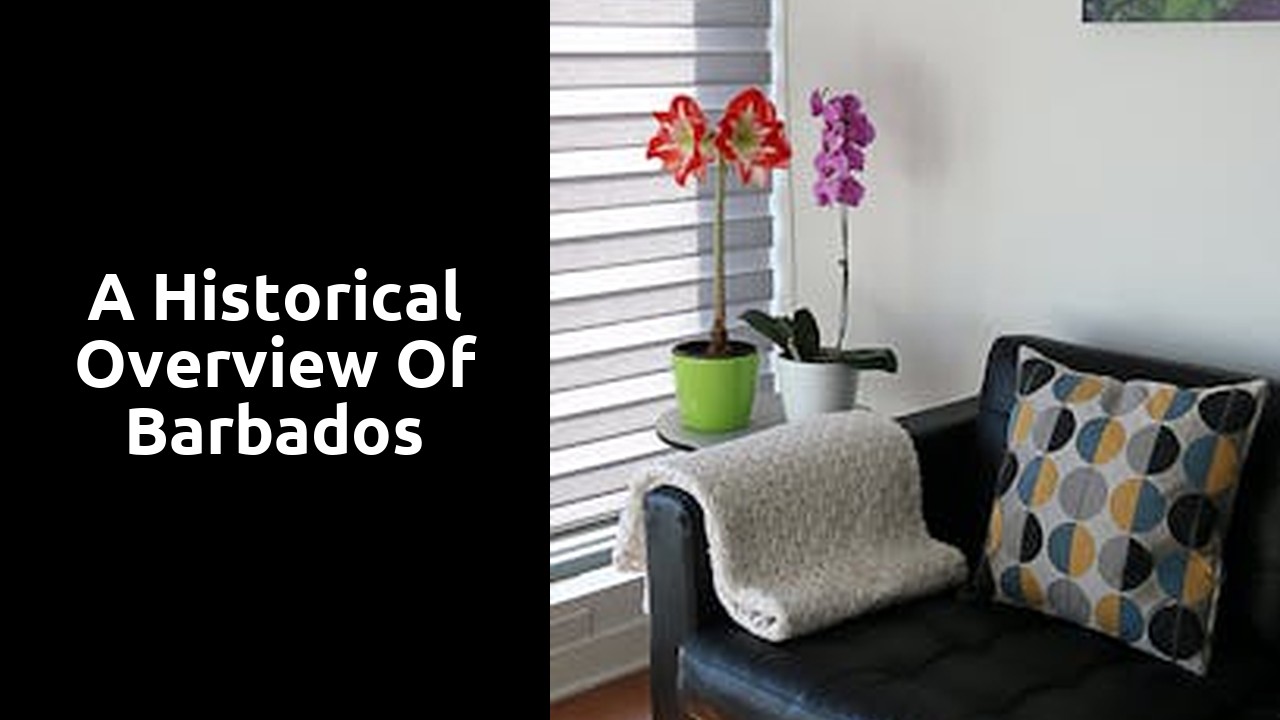A Historical Overview of Barbados

Independence Movement in Barbados
The Independence Movement in Barbados was a pivotal period in the island's history, marked by fervent calls for self-governance and liberation from colonial rule. This movement gained momentum throughout the 20th century as Barbadians increasingly embraced the ideals of sovereignty and autonomy. The quest for independence was fueled by a growing sense of national identity and a desire to assert Barbadian culture, traditions, and values on the global stage.
Political leaders, activists, and ordinary citizens united under the banner of independence, advocating for self-determination and the right to govern their own affairs. The movement saw spirited debates, grassroots campaigns, and widespread mobilization across the island as Barbadians rallied behind the cause of freedom. The relentless efforts of independence proponents ultimately culminated in Barbados achieving independence from British colonial rule on November 30, 1966, marking a significant milestone in the nation's history.
Path to Independence for Barbados
The path to independence for Barbados was a gradual and arduous journey that spanned several decades. A pivotal moment in this process was the formation of political parties in the mid-20th century, reflecting the growing desire among Barbadians for self-governance and autonomy. The Barbados Labour Party (BLP) and the Democratic Labour Party (DLP) emerged as key players in the movement towards independence, with both parties advocating for the rights and sovereignty of the Barbadian people.
Throughout the 1960s and 1970s, Barbados witnessed a surge in political activism and calls for independence from British rule. This period was marked by intense negotiations between Barbadian leaders and British officials, resulting in the Barbados Independence Act of 1966. On November 30th of that year, Barbados officially became an independent nation, with Errol Barrow serving as its first Prime Minister. The journey to independence was a testament to the resilience and determination of the Barbadian people, as they paved the way for a new era of self-determination and national identity.
Political Development in Barbados
Political development in Barbados has been marked by a commitment to democracy and parliamentary governance. The island nation transitioned from being a British colony to establishing itself as an independent parliamentary democracy in 1966. Since then, Barbados has held regular elections, providing its citizens with the opportunity to elect their representatives and participate in the political process.
The political landscape in Barbados is characterized by a multi-party system, with the two main political parties being the Democratic Labour Party and the Barbados Labour Party. These parties have alternated in power over the years, showcasing the country's commitment to a peaceful democratic transition of leadership. The government operates under a bicameral system, with a House of Assembly and a Senate, reflecting the influence of the British parliamentary model in Barbados' political institutions.
Barbados as a Parliamentary Democracy
Barbados, situated in the eastern Caribbean, is renowned for its stable and vibrant parliamentary democracy. The country's political landscape is characterized by a Westminster-style system that has been in place since gaining independence in 1966. Under this system, Barbados operates as a constitutional monarchy with a bicameral parliament consisting of the House of Assembly and the Senate.
The country's political framework encompasses a Governor-General appointed by the monarch, a Prime Minister selected from the majority party in parliament, and a Cabinet responsible for overseeing various governmental departments. Moreover, elections are held every five years, allowing citizens to participate in the democratic process by electing representatives to the House of Assembly. With a strong tradition of adherence to democratic principles, Barbados has upheld its reputation as a beacon of stability and democracy in the Caribbean region.
Social Changes in Barbados
Social changes in Barbados have been significant over the years, especially in the realms of education and healthcare. The country made remarkable strides in improving access to education for its citizens, with an emphasis on literacy and vocational training. The government invested heavily in building schools and training teachers to ensure a strong educational foundation for the population.
Moreover, Barbados has shown a commitment to providing quality healthcare services to its people. The country established a network of healthcare facilities and introduced health programs to address various public health issues. As a result, Barbados has achieved commendable improvements in life expectancy and overall well-being of its citizens. These social changes have played a crucial role in shaping the country's development and ensuring a higher quality of life for its population.
Education and Healthcare in Barbados
Education in Barbados has undergone significant developments over the years. The country boasts a strong educational system that emphasizes both quality and accessibility. With a focus on ensuring that all citizens have access to education, Barbados provides free primary and secondary education for its residents. Additionally, the government has invested in expanding educational opportunities, with programs that support lifelong learning and skill development.
Healthcare in Barbados is another area of focus, with the government striving to provide high-quality healthcare services to its citizens. The country has a well-established healthcare system that includes public hospitals, clinics, and healthcare centers. Barbados also has a national health insurance scheme that helps to make healthcare more affordable and accessible to all residents. Overall, the government's commitment to improving both education and healthcare underscores its dedication to the well-being and development of its people.
Related Links
Why Visit the Historic Sites of BarbadosWhy Experience the Nightlife in Barbados
Roundup: Must-See Sightseeing Tours in Barbados
Review: The Ultimate Water Sports Experience in Barbados
Top 10 Beach Activities in Barbados
What to Expect at Cultural Events in Barbados
What Are the Best Sightseeing Tours in Barbados
How to Enjoy Water Sports in Barbados